So there's another modeling idea for you: put together a train using an RS11 for power, place a G in front and you have an authentic pre-Conrail C&A freight.
Bob
|




|


quote:Originally posted by GG1 4877:
Hev - that looks great! Did you find the mod to be pretty easy? I did, but then I have a nasty habit of taking all my trains apart eventually.
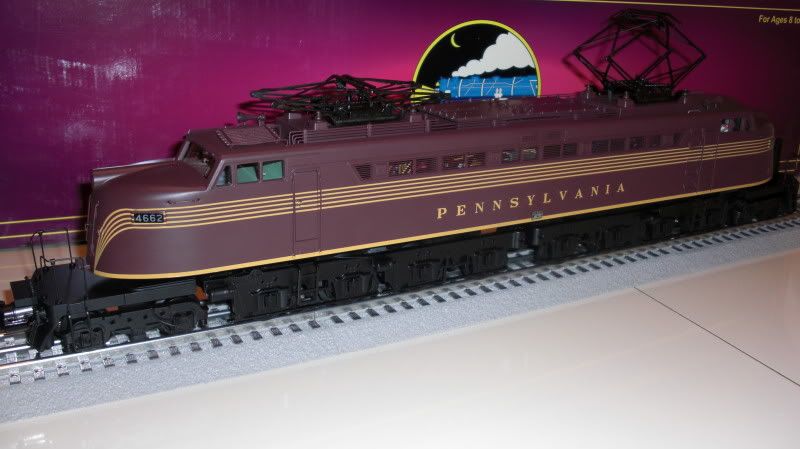
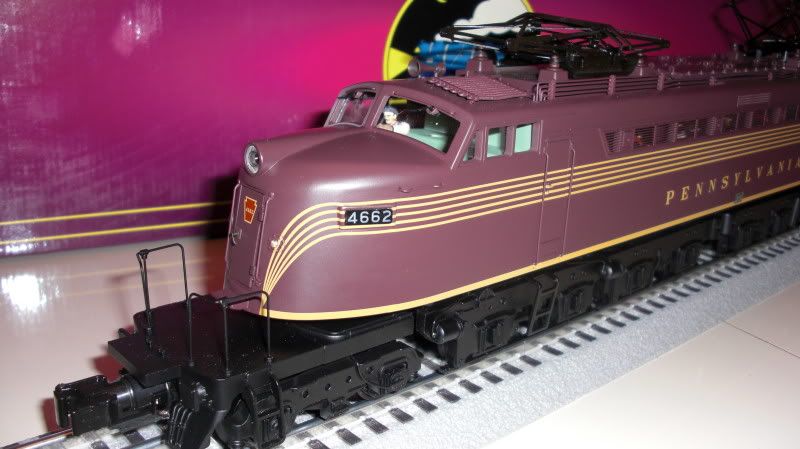

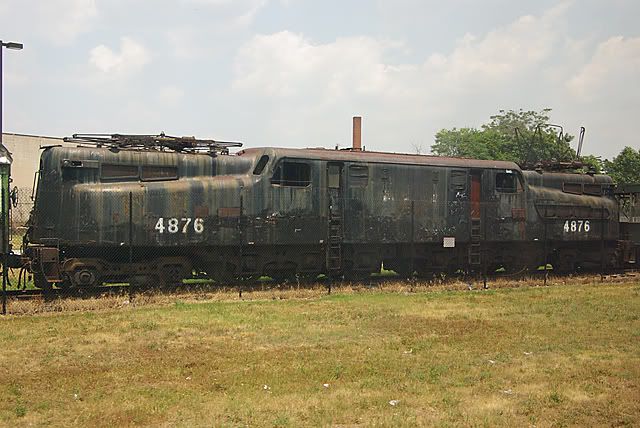
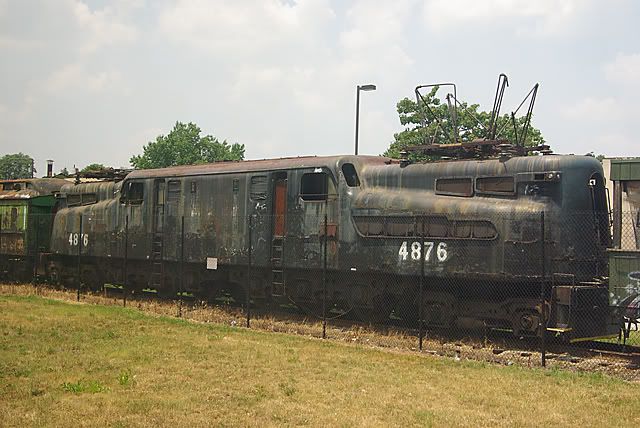
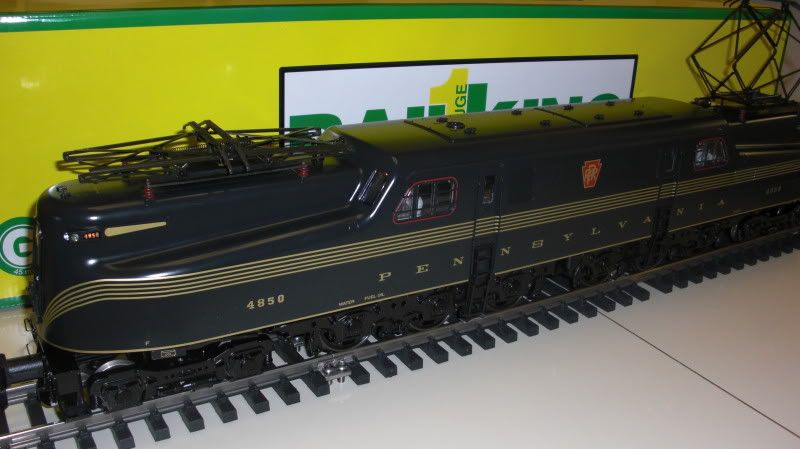

quote:Originally posted by GG1 4877:
Good Afternoon (AZ Time).
I took some time to get some photos together to compare the various manufacturers of scale GG1s.
We start with all the motors in a row. From left to right we have a Lionel JLC, a Weaver, a Williams, and a Proto 2 MTH. These were chosen since they are all single stripe and Brunswick Green.
Now Looking at the individual locomotives in the same order you will note the following details of each:
The Lionel JLC is a formidable model and is the only one commonly available one with the FARR intake filters high up on each end of the hoods. (Eliot - Sorry I didn't back to you sooner on this). Many consider it a aesthetic violation. It was done by the PRR in a program from the late 50's through the 60's on several GG1s to prevent fine particles of snow from being sucked off the track in through the filters and shorting out the motors. It happened twice in PRR history and it crippled passenger train operations.
The Weaver model is brass construction with cast wheels and a plate frame. It was the first mass produced scale GG1 yet it is still a very fine model. The brass allows for a level of detail that suited the GG1. The only problem is the gold stripe with the gold on the keystone. The Lionel version is correct. This, while very attractive is not representative of the prototype. Having said that, the prototypes were not washed often per PRR standard practice so the color would suit it better if it were weathered.
The Williams scale model is one of the best values for a new GG1 and can negotiate an 0-42 curve in a pinch. This model shares the same style of paint and keystone as the Weaver version. It is a plastic body and does lack a few of the details found in the Weaver, but it is close. The frame and wheels appear to be from the same manufacturer or molds and they are interchangeable. The particular issue with this model is that this is a road number never produced. The highest numbered GG1 was 4938 during its Pennsy years. A good smooth runner and easy to find, so these are always nice additions to the roster.
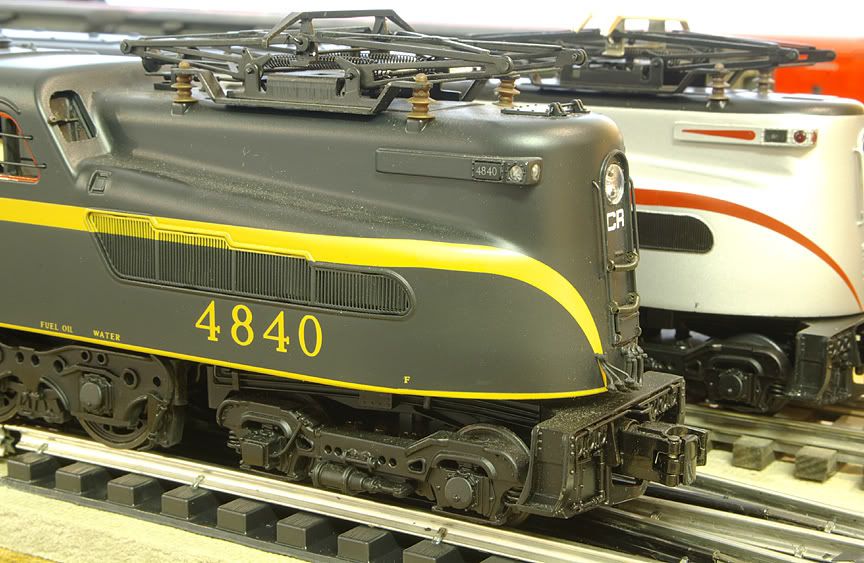
The MTH Proto-2 model with the operable pantographs is an excellent model. Again its underframe parts are interchangeable with Weaver / Williams. The MTH model however has stepped it up on detail. The pantograph is accurate for this road number with the single contactor on the top versus the double contactor of most. It has a see through linen filter screen which is also a nice feature. While this is not the PRR version, this number is one of many that got to keep its stripes and was simply stenciled over with PC and later CR letters.
Now a comparision of the fronts of a few of these models: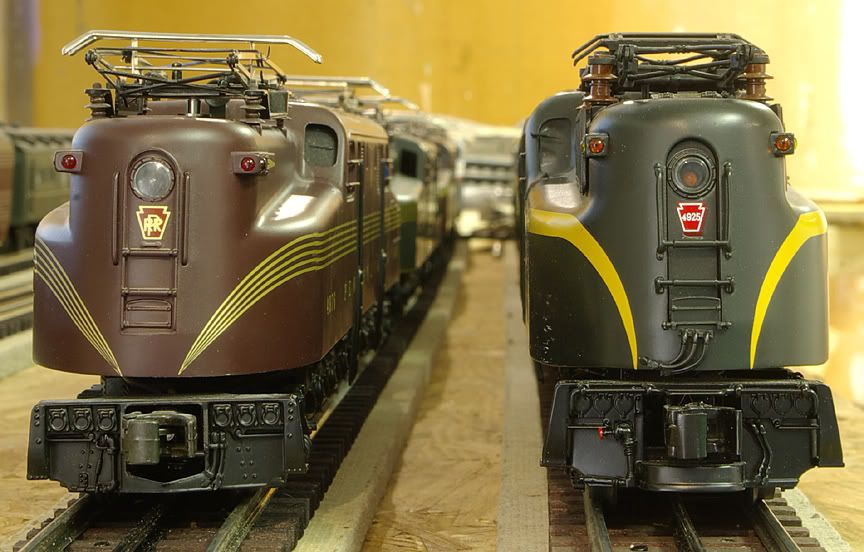
Granted the GG1 to the left is not one of the sample group, but it is representative of the level of detail found on both the Weaver and Williams models. The Tuscan GG1 is the original MTH Proto-1 release. You can clearly see the level of difference in the detailing of the front. The MTH lacks clarity in the depth of the detail and the pilot is not nearly as detailed. The Lionel version is crisp. To be fair, these two are 9 years apart on production.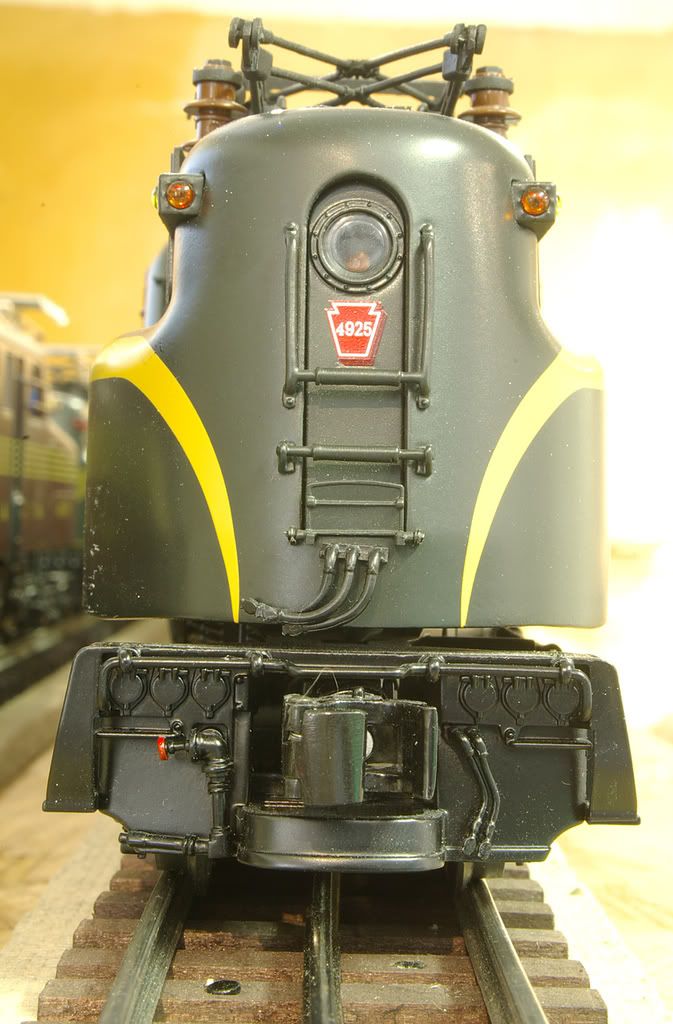
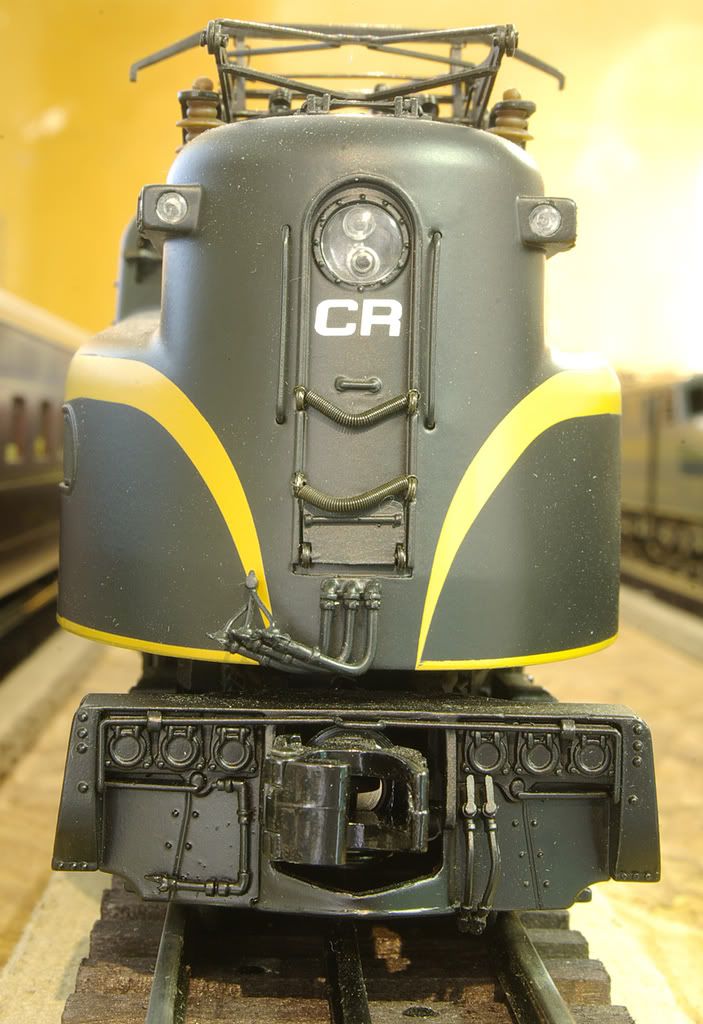
The 4925 JLC version has a wealth of great detail on the front and the MTH freight version below it is also sporting added detail.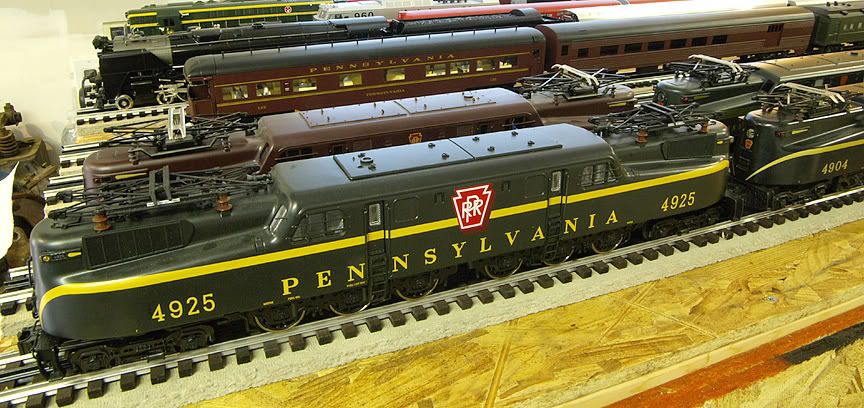
This photo shows how the JLC version is a bit closer to scale than all the others. It is actually about 5/8"-3/4" longer. The two GG1s were lined up with the back aligned. The wide angle photograph distorts the view somewhat, but it is certainly noticeable when placed side by side. When pulling trains or lined up, I honestly don't find it to be that obvious.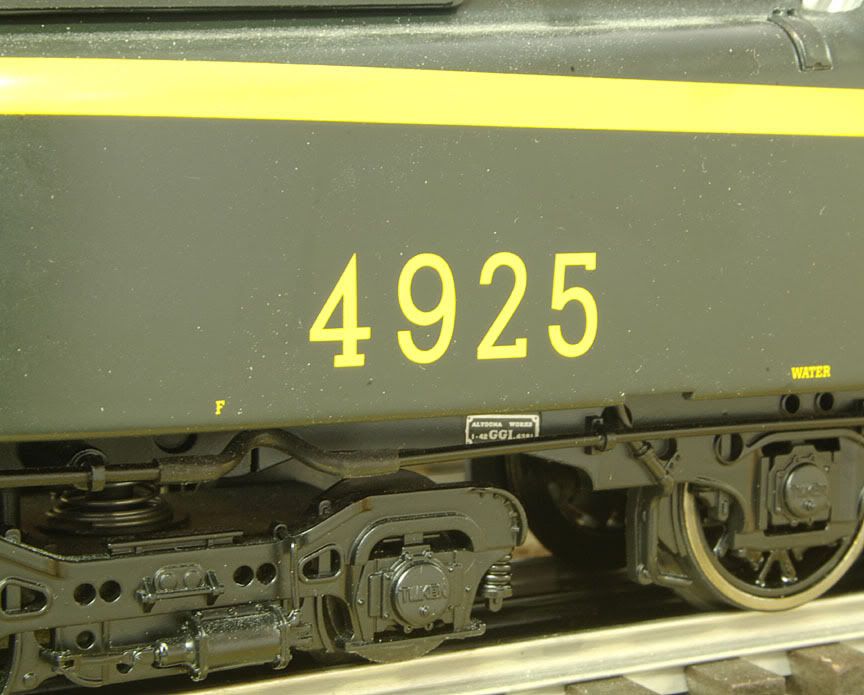
And finally, see the level of detail at the bottom of the JLC version, which is unique among these models. From the open spokes, the detail on the builders plate, this is truly a well detailed model. If anything, my only complaint on detail is that the plates were starting to show their seams on the prototype by the time this motor received its filter modifications. How neat would that have been to work into the molding!
Overall, I find things that are attractive in all these models. The JLC is the finest example in terms of detail, but the non functional and rigid pantographs are truly a hassle. I am probably going to modify them down the road and use manual ones or see if I can get the MTH ones to work. The Weaver, while being the oldest, are very crisp and nice models. When priced right, I wouldn't hesitate to pick up more. MTH continues to refine the GG1 and has offered the most variations and road numbers, but I would like to see the sound set upgraded a bit or simply a version without sound at a cheaper price. Finally the Williams are the old standby. When all else fails, these will run, run, and run. Perfect for train shows where you need to run for long stretches of time.
I apologize for the length of this and I hope there is something useful for you in here!
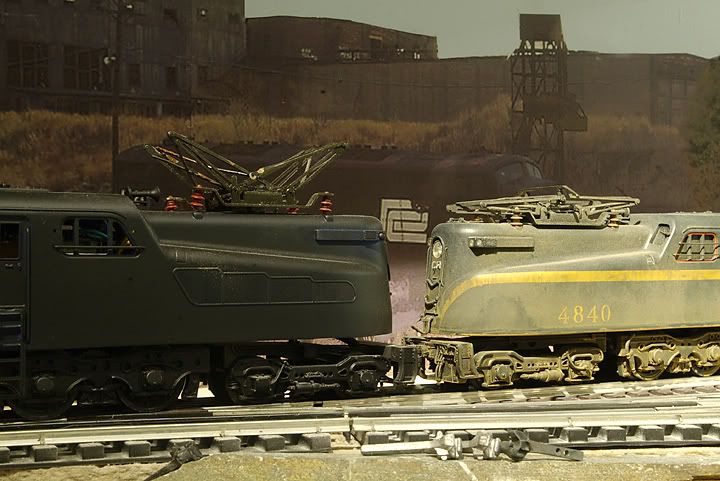
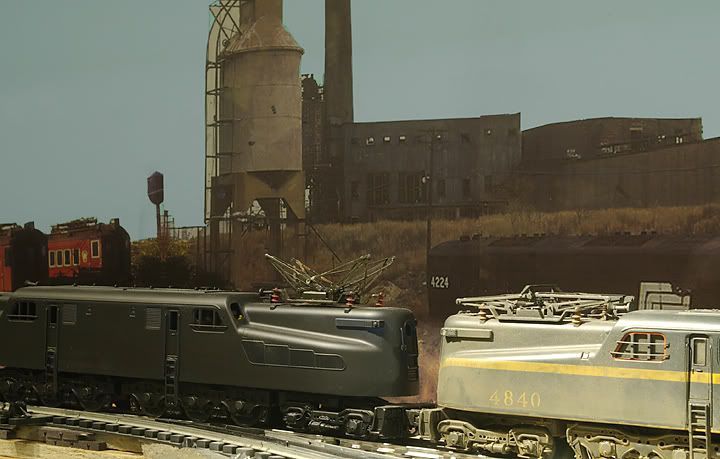
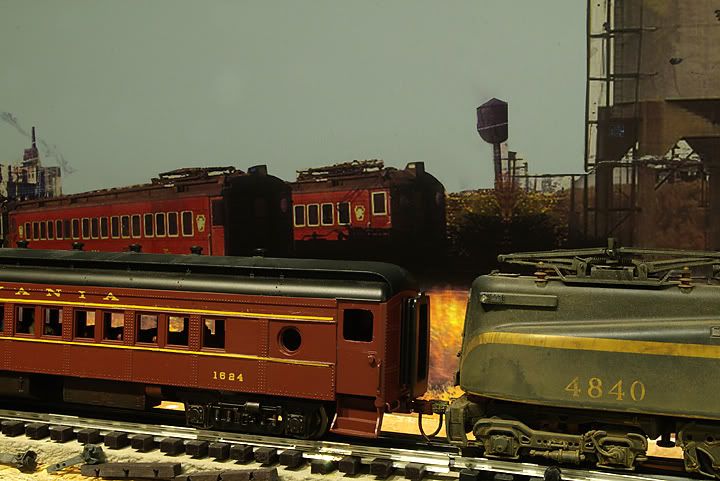
quote:
Is that Background Warehouse ... or what ?




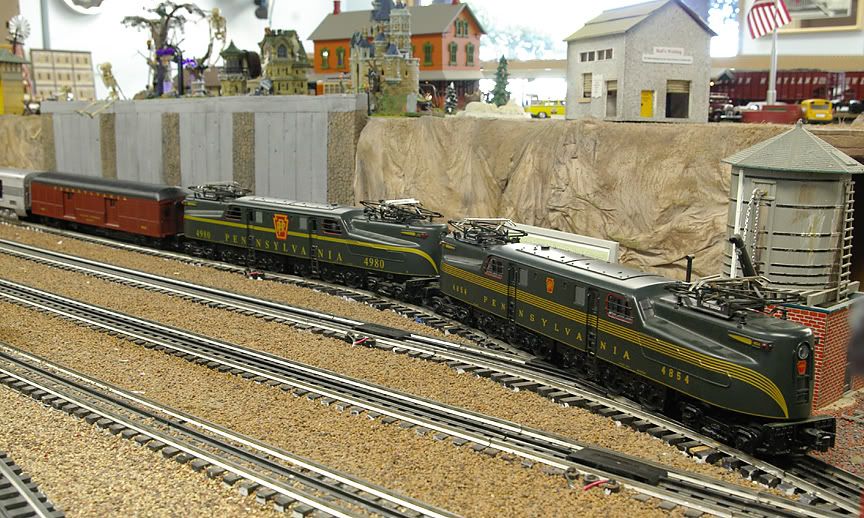
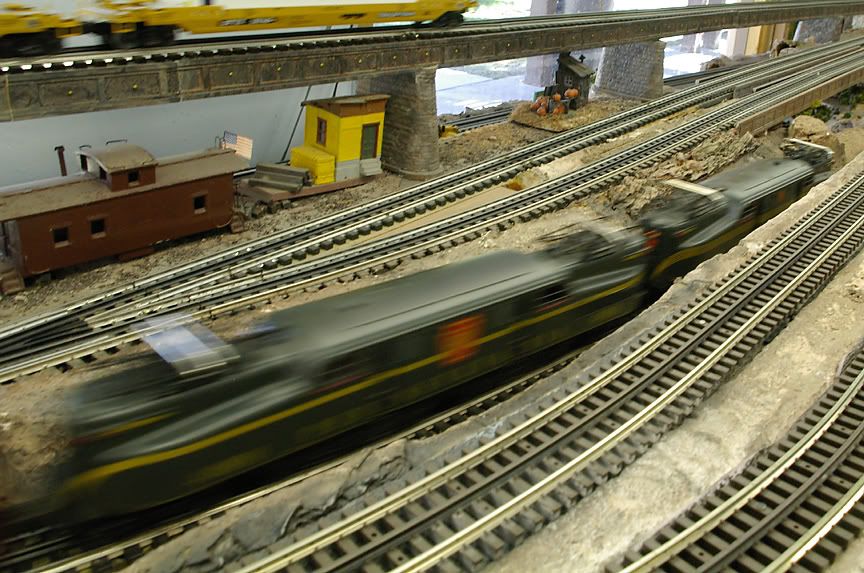
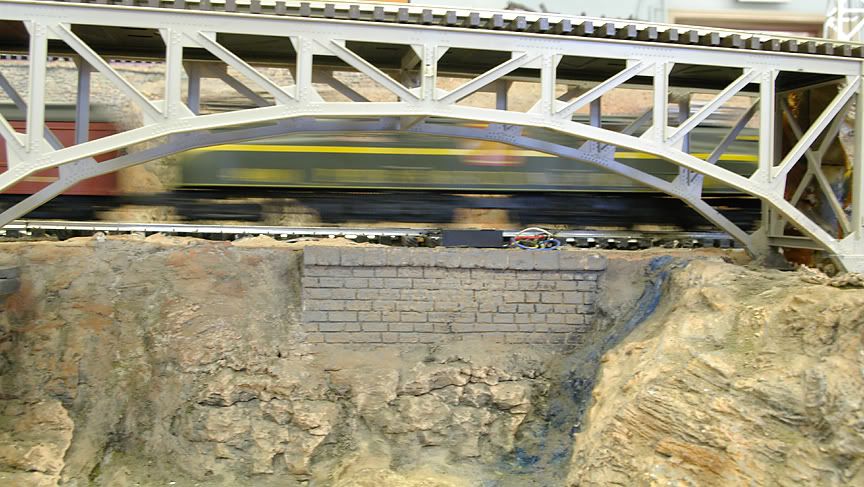
quote:Originally posted by John Sethian:
Both have been repowered and fitted with PS-2
Access to this requires an OGR Forum Supporting Membership
